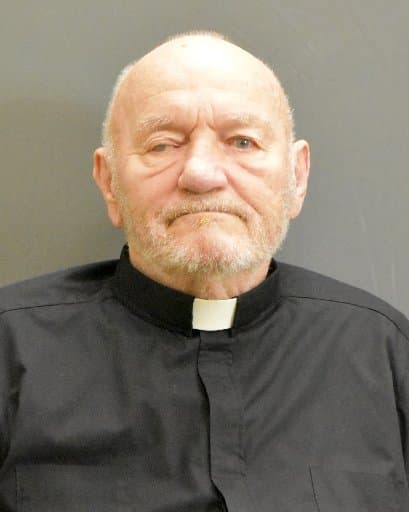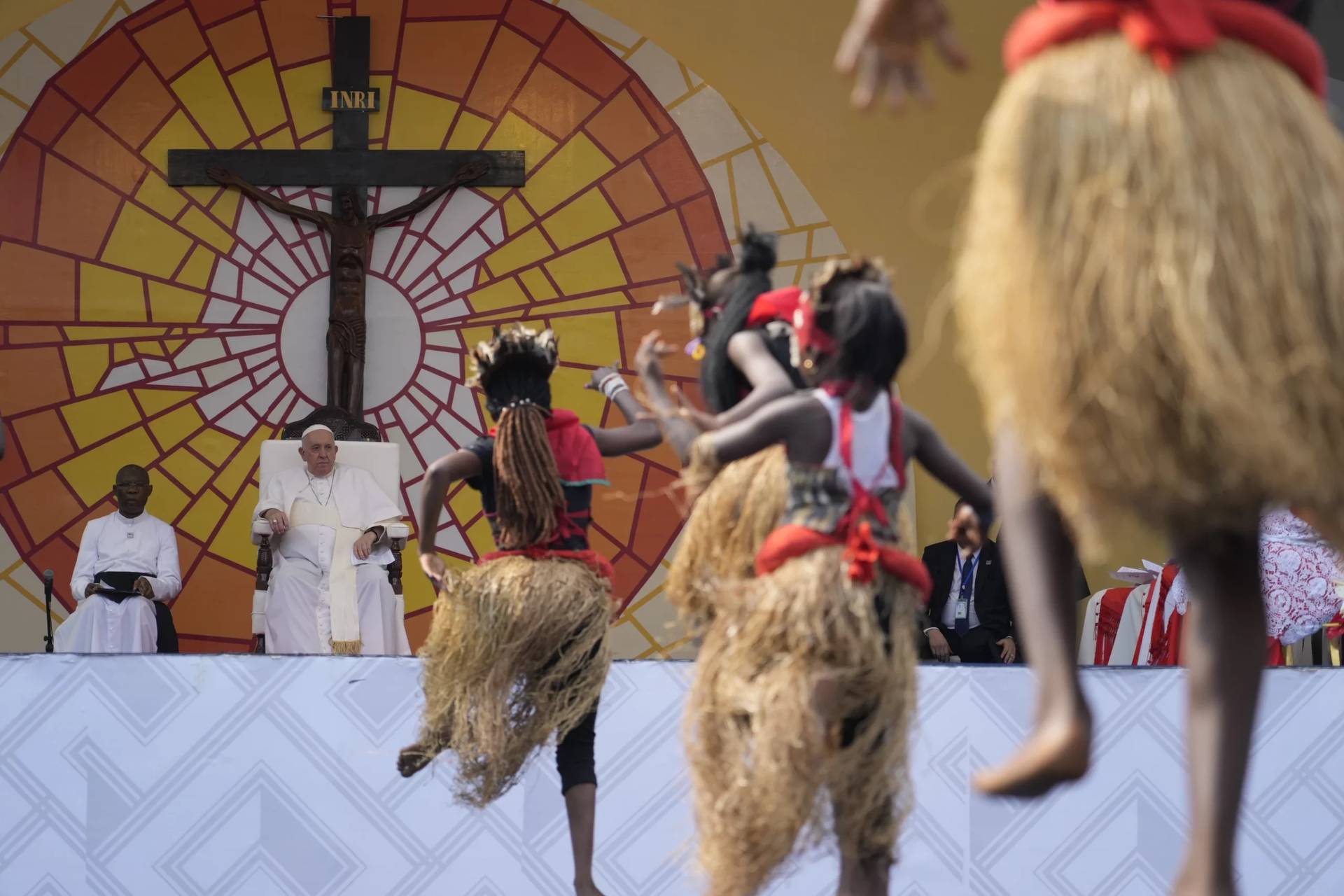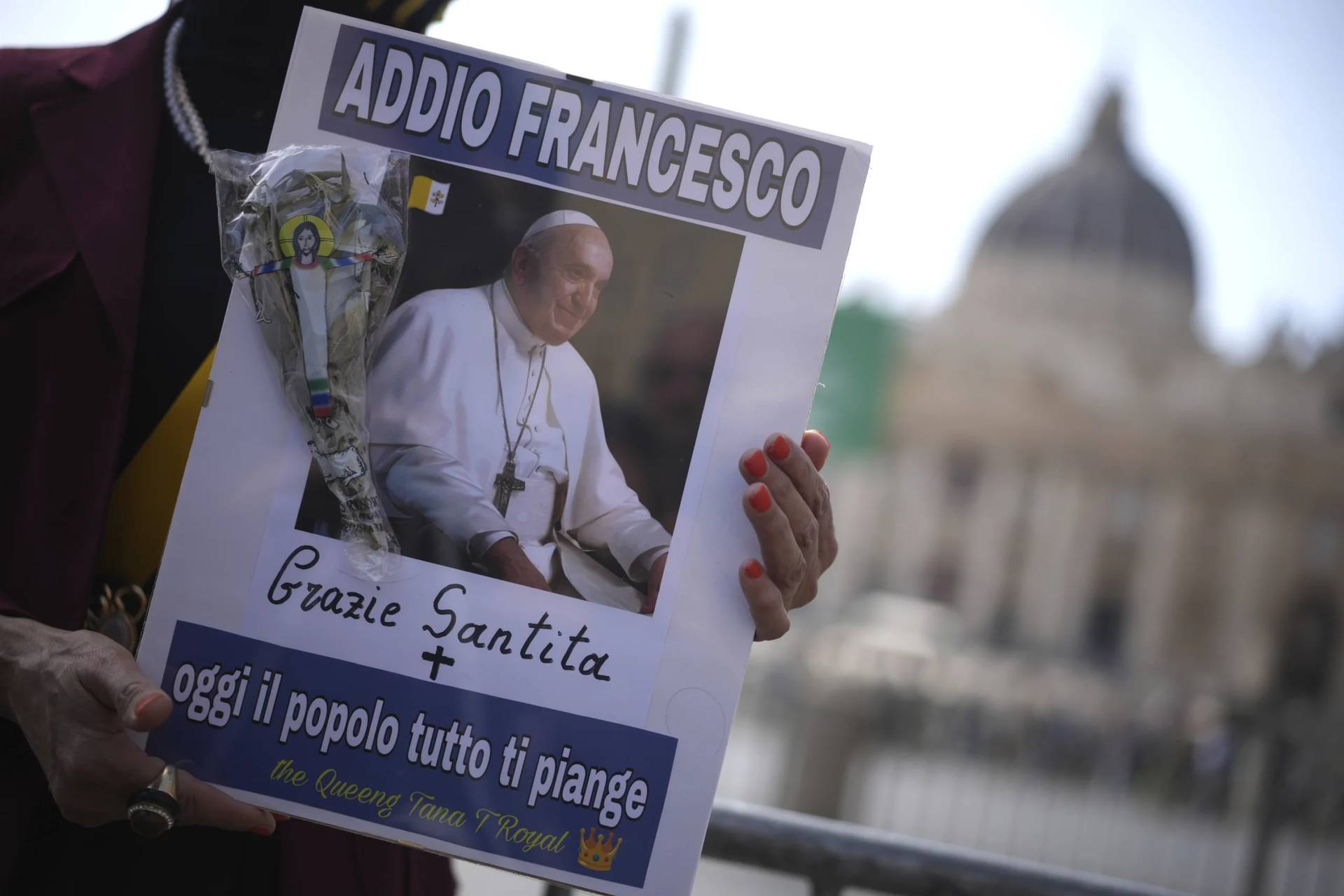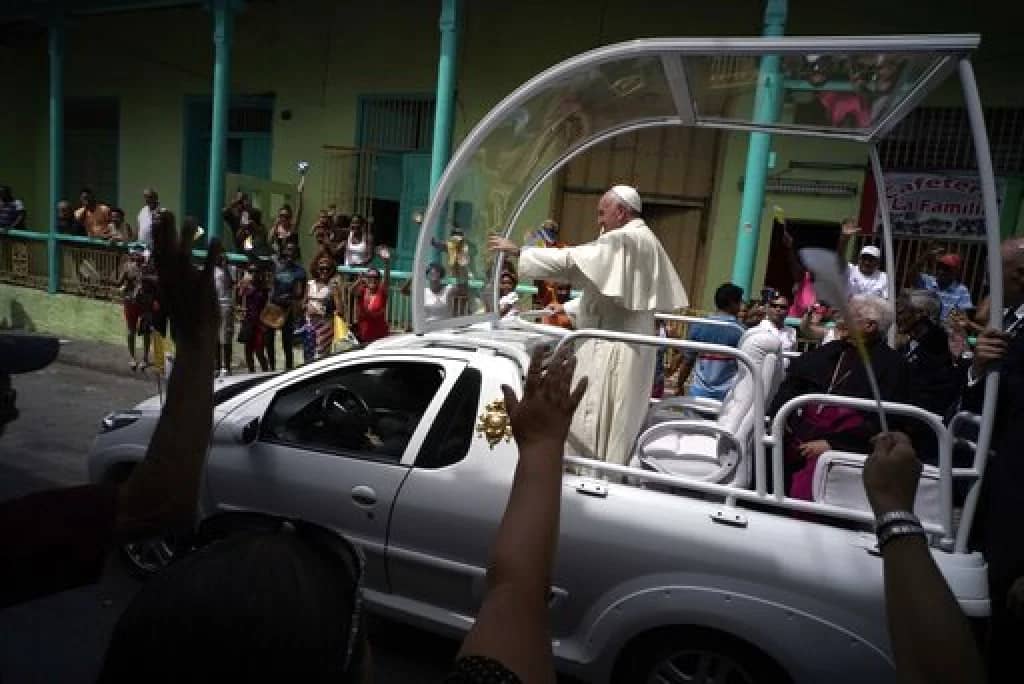WASHINGTON, D.C. — Oblate Father Carl Kabat, who routinely described himself as a “fool for Christ” for his many faith witnesses challenging U.S. nuclear weapons policy, died Aug. 4 at his religious order’s Madonna Residence in San Antonio. He was 88.
His witnesses and acts of civil disobedience spanned more than four decades and included what was the first plowshares action in 1980 to symbolically dismantle nuclear warheads.
A funeral Mass was celebrated Aug. 6 in the chapel at the residence.
Kabat devoted most of his priesthood to protesting what he considered to be misguided government and military preparations for nuclear war. In addition to the Plowshares Eight action, he joined seven other plowshares and civil disobedience symbolic disarmament protests, for which he served more than 17 years in prison.
The 42-year-old plowshares movement takes its name from the Book of Isaiah’s call to beat swords into plowshares and for nations to end war.
Kabat told Catholic News Service in 2009 that being jailed did not bother him. He spoke to CNS as he awaited sentencing for cutting a hole in a fence surrounding a missile silo in rural Colorado and hanging banners with joyful message of peace. He was turning 76 at the time.
The priest regularly reminded people that Jesus was arrested for challenging the Roman empire.
During one of his imprisonments, Kabat became blind in his right eye when complications developed after cataract surgery. Even so, he remained an avid reader.
Kabat was born Oct. 10, 1933, to the late Nick and Anna Kabat on a farm in Scheller, Illinois, the third of five children.
He decided to become a priest after leaving college, following the path of his older brother Paul, who also had joined the Oblates. He professed his first vows as a Missionary Oblate of Mary Immaculate in 1957 and was ordained a priest in 1959. Early in his priesthood he was assigned to ministries in Minnesota and Illinois and then was sent to Philippines and Brazil.
Reading St. John XXIII’s 1963 encyclical “Pacem in Terris” (“Peace on Earth”) influenced him to begin peacefully protesting the possession and potential use of nuclear weapons. Kabat joined his first nonviolent protest in Plains, Georgia, the home of President Jimmy Carter, who supported production of first-strike nuclear weapons systems.
The priest later moved to Jonah House, a collective in Baltimore, which worked for peace and ministered alongside poor residents in their neighborhood. It has been the home of several plowshares participants over the years. It’s where he met attorney John Schuchardt, who also was one of the Plowshares Eight.
Schuchardt recalled Kabat as a person who was determined to call out what he considered the misguided military and government policy regarding the potential use of nuclear weapons in war.
“Looking at Carl’s 17 years in prison, here was someone whose greatest gift was hope,” Schuchardt, 83, told CNS Aug. 8. “What do you manifest when you are imprisoned again and again and again? You act for truth for the eventuality of humanity waking up. You wake up every day with the gift of hope.”
Schuchardt, director of House of Peace in Ipswich, Massachusetts, said the Oblate’s life “was a ministry.”
“He was a witness to the risen Christ. He had experienced the risen Christ. He was the resurrection,” Schuchardt said.
Art Laffin, a member of the Dorothy Day Catholic Worker in Washington, recalled Kabat in a reflection posted on the Pax Christi USA website, saying his priest friend considered himself a “fool for Christ.”
The reference comes from the First Letter to the Corinthians, which says: “We are fools for Christ, but you are so wise in Christ! We are weak, but you are strong! You are honored, we are dishonored!”
Laffin said the priest at times would dress in a clown suit to demonstrate the absurdity of U.S. nuclear weapons policy. At his protest actions, he often would display peace banners on fencing surrounding the target of his angst, Laffin said.
Schuchardt said Kabat would often break into song during his trials, singing spiritual hymns that highlighted calls for peace and belief in the Resurrection.
Kabat continued to protest nuclear weapons until 2014. He lived at a Catholic Worker house in St. Louis until moving to the Oblate residence in his later years.
Survivors include a sister, Mary Ann Radake of Tamaroa, Illinois, nieces and nephews. Brothers Paul, Robert and Leonard preceded Father Kabat in death.














